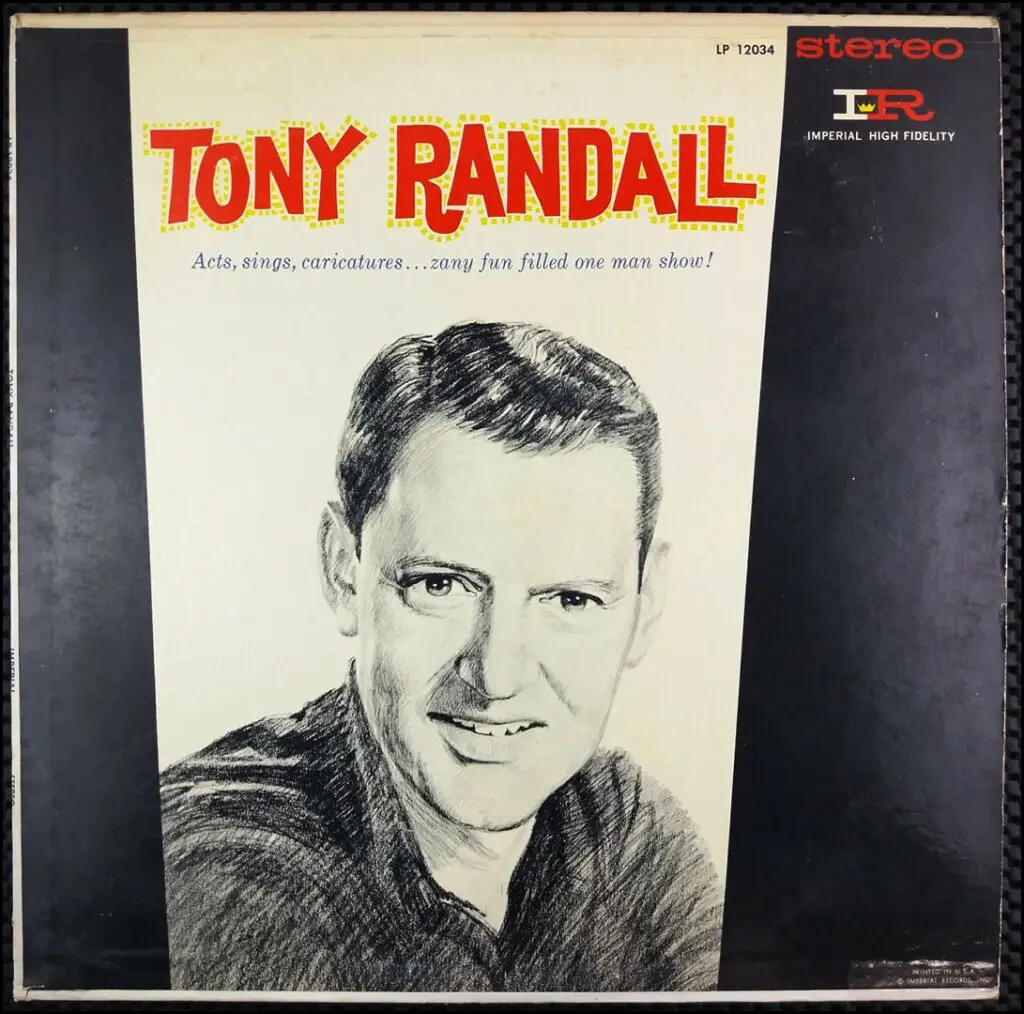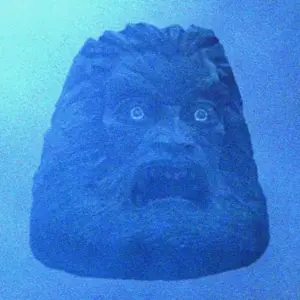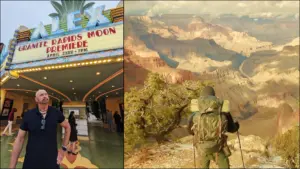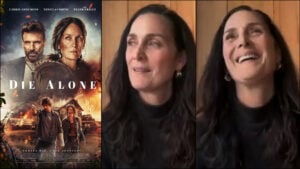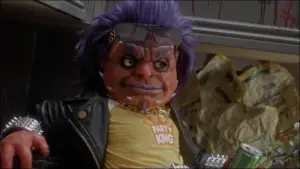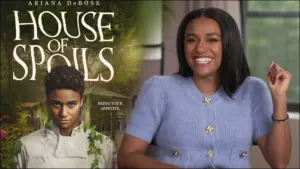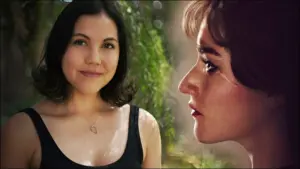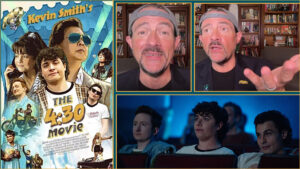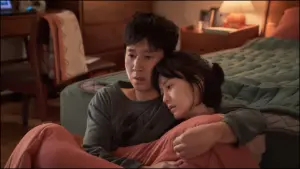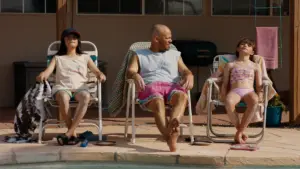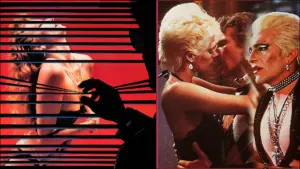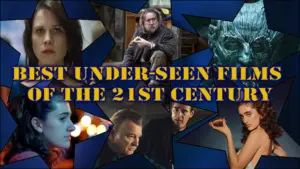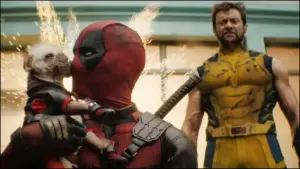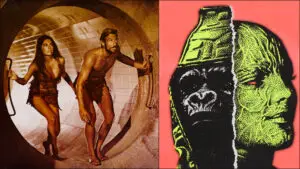This is the story of the time I made actor Tony Randall listen to his worst song.
It was 1994, and I was working as the City Week editor for the Tucson Weekly, an alternative newspaper in Arizona. Among that week’s events was a five-night run of Neil Simon’s play The Odd Couple.
The touring revival of the 1965 play starred Randall and Jack Klugman, who had popularized the lead characters during a TV adaptation that ran for five seasons beginning in 1970. Proceeds would help fund Randall’s theatre company, the National Actors Theatre (NAT) in New York, which was then in its third season.
Eager to promote his upcoming shows, Randall readily agreed to a phone interview.
Though a brief conversation, with Randall calling from his touring stop in St. Louis, Missouri, the interview was a big deal for me. I grew up enjoying syndicated reruns of The Odd Couple, often watching and laughing with my dad. The premise of the show is that Randall’s character, neat freak Felix Unger, has been thrown out of his New York apartment by his wife, and his only option is to move in with the pathologically slobby Oscar Madison (played by Klugman). As in the stage play, their conflicting personalities force them to become self-aware. The TV show’s opening narrator intones that “deep down,” Unger knew his wife was right about him, but “he also knew that some day he would return to her.”
Even as a kid, I identified with the character’s sense of rejection and faint hope. Probably because my dad was a divorced single father. Kids in the 1970s had additional reason to like The Odd Couple because it was the basis for muppets Ernie and Bert, the mismatched roommates who appeared regularly on the children’s educational program Sesame Street.
During the 1965 Broadway run and in a 1968 movie, Felix and Oscar were played by legendary stage-and-film actors Jack Lemmon and Walter Mattheau. Somehow, in reinventing the roles for the 1970s show, Randall and Klugman managed to make the characters even better. In times of stress, Randall’s Felix Unger was often seen holding his hand to the bridge of his nose while emitting a high-pitched nasal honk. The show ended its 114-episode run with the ultimate wish fulfillment: Unger finally moving out after winning back the love of his wife.
Tony Randall’s previous successes included hit movies in the late 1950s, such as Pillow Talk opposite Doris Day and Rock Hudson. In 1964 he played seven different roles for The 7 Faces of Dr. Lao, a feat of comedic versatility inspired by Alec Guinness’s eight roles for Kind Hearts and Coronets (1949).
I remember getting a kick out of Randall’s quirky performance as the detective Hercule Poirot, for a 1965 filmed adaptation of Agatha Christie’s book The ABC Murders (the movie, unendorsed by Christie, was titled The Alphabet Murders). In a memorable sequence unrelated to solving the mystery, Randall’s strutting Poirot bowls two lanes simultaneously with both arms, getting a strike in each.
Over the years, Randall established a public persona of tongue-in-cheek, affable pompousness. He became a staple of daytime game shows and evening talk shows. Though not outwardly political, he was well ahead of the curve in encouraging people to be non-smokers, and he often ribbed Johnny Carson (on whose show he appeared 105 times) about his chain-smoking habit. Even as a voice actor Randall excelled. In Joe Dante’s 1990s horror-comedy Gremlins 2: The New Batch, he vocalizes the “Brain Gremlin” puppet and is by far the most memorable element in that over-the-top sequel.
For those unfamiliar with the actor, take a look at his Wikipedia page and marvel at the longevity of a dedicated entertainer who began as the child of an art dealer in Tulsa, Oklahoma.
The Interview
During the 1994 phone interview, one of the first things we talked about was Jack Klugman’s recovery from throat cancer, which he’d overcome after four years. (Klugman died in 2012, at age 90.) I also asked:
Did reprising your role as Felix Unger come easily to you?
Tony Randall: “Even though I’ve performed as Felix Unger countless times, it doesn’t come easy to me. For every single performance you have to go back to the beginning, to the roots, and prepare very carefully to get it right. You can’t just repeat. You have to revivify.”
What’s it like performing the source material instead of the televised adaptation?
“The Neil Simon play is funnier than our TV show. The audience is tumultuous.”
Speaking about the National Actors Theatre, Randall said founding it in 1991 fulfilled his life-long dream to establish a national classical repertory theatre.
“I decided if I didn’t start it myself, I’d never see it, so about a dozen years ago I quit my (TV and movie) career and began working toward that goal. Now it’s my life.”
Randall said the NAT was still struggling, in part because The New York Times “has been unfailingly hostile to our productions. They constantly attack me. It’s a mystery: They’ve been unsympathetic from the very beginning. In the opening paragraph of his review for The Crucible, Frank Rich wrote: ‘TV star’s ego trip’.”
I asked Randall if the problem might be that audiences had a hard time separating his serious performances in NAT productions from the wacky persona he often exhibited elsewhere in his career, as in the parody movie Fatal Instinct (1993), or in his many guest spots on The Late Show With David Letterman, including his appearances with Letterman’s touring Bangladeshi storekeepers.
Randall said, “I don’t think so. I don’t see any conflict. Acting is acting.”
The NAT’s fortune would improve within a couple years, winning (aptly named) Tony Awards in 1996 and 1997 for Inherit the Wind and The Gin Game. After nearly 20 major productions, the NAT dissolved in 2004 in the wake of Randall’s death from pneumonia at age 84.
Tony Randall: Nature Boy
Another thing about Tony Randall: He recorded some albums.
This wasn’t unusual for a popular actor in 1960. What was unusual was that the album, touted as a “zany, fun-filled, one-man show!”, was so purposely awful.
Some friends and I had found the album at Bookman’s, a used-books-and-music store in central Tucson. We immediately loved its pure, campy, goofiness. Standout tracks include Randall’s version of “Little Sir Echo,” and a duet with Joyce Jameson for “Baby, It’s Cold Outside” that flips the male-female roles so that the woman is the coaxing seducer. It’s easy to draw a connection from Randall’s all-in-fun, who-cares-if-this-is-stupid nonchalance to other highly beloved novelty albums, such as those by William Shatner and Leonard Nimoy.
The standout track on Randall’s album is “Nature Boy,” an Eden Ahbez composition that became a huge pop hit when Nat King Cole recorded a deep-voiced, hypnotic version in 1948. Within a few years the song became a standard, with versions recorded by Frank Sinatra, Sarah Vaughan, Miles Davis, Bobby Darin, and eventually Nat King Cole’s daughter, Natalie Cole, winning her a Grammy in 1991. (If you want to go further down a rabbit hole, Ahbez was sued for plagiarizing the melody from a 1935 song by Yiddish composer Herman Yablokoff, who in turn had cribbed the melody from the second movement of Antonín Dvořák’s 1887 Piano Quintet No. 2, who likely adapted it from a Czech folk song, and they probably stole that from a randy songbird named Bob.)
Right out of the starting gate, people wanted to riff on “Nature Boy,” as evidenced by 1948’s “Serutan Yob (A Song for Backward Boys and Girls Under 40),” by Red Ingle & the Unnatural Seven (minus Red Ingle). But that was nothing compared to Tony Randall’s take.
Randall’s 1960 version is aggressively and joyously irreverent, transforming the song’s somber message about how “the greatest thing you’ll ever learn is just to love and be loved in return” into a torturously off-kilter masterpiece of intentional bad singing.
A friend of mine who at the time worked at a video-rental store would occasionally play it, prankishly out of nowhere, just to see customers’ bewildered reactions.
I couldn’t let the interview end without telling Tony Randall how much I dug his recording.
But would saying “I love your verson of ‘Nature Boy'” really be enough? No.
I had to set the stage. I had the song cued up, and asked Mr. Randall if I could play a bit of it over the phone, which the trouper stoically obliged — for as long as I figured he could endure without hanging up on me.
This is one of my favorite novelty songs. What led to you performing it like this?
Tony Randall: “The entire album was my failed attempt at impersonating Wally Cox, a well-known comedian at the time.”
It’s not a failure as far as my friends and I are concerned. We listen to the album over and over, ever since we found it at a local store. It’s the best $1 we ever spent.
“One whole dollar? You got stung.”

